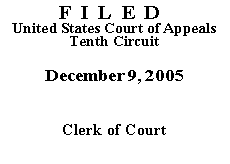

| RONALD MITCHELL,
Plaintiff-Appellant, v. JOHN ASHCROFT, Attorney General; BRUCE REPPERT, Assist. U.S. Attorney, S.D. Ill.; G. L. HERSHBERGER, Director, BOP, NCRO; MRS. CARNEY, Unit Manager, FCI Greenville; CRAIG LAMBERT, Attorney, Little Rock, AR.; HARLIN LAPPIN, Dir., BOP; ROB MUNDT, BOP North Central Reg. Office; MICHAEL JOHNSON; DR. POLLAND, USP Florence, Defendants-Appellees. |
|
Ronald Mitchell, appearing pro se, appeals from the district court's order dismissing his federal prisoner civil rights action. The district court made the following rulings in its order: dismissed claim one against defendants Ashcroft, Johnson and Reppert for lack of personal jurisdiction; dismissed claim two against defendants Lappin, Hershberger and Mundt for lack of personal jurisdiction, against defendants Ashcroft, Carney, Johnson and Reppert for failure to exhaust administrative remedies, and against defendant Lambert for failure to state a claim; dismissed claim three against defendants Lappin and Mundt for lack of personal jurisdiction; dismissed claim four against defendant Polland for failure to exhaust administrative remedies; and dismissed claim five against defendants Ashcroft, Johnson, Lappin and Reppert for lack of personal jurisdiction. Mr. Mitchell argues that the district court erred by: construing his motion to convene a grand jury as a Bivens complaint; dismissing his claims for failure to exhaust administrative remedies; dismissing his claims for failure to state a claim; dismissing his claim for deliberate indifference to medical needs; dismissing his claim against defendant Carney; and dismissing his conspiracy claim against defendant Lambert.
When reviewing a dismissal for lack of personal jurisdiction, "we resolve all factual disputes in favor of [the plaintiff] and review the district court's jurisdictional ruling de novo." Omi Holdings, Inc. v. Royal Ins. Co. of Canada, 149 F.3d 1086, 1091 (10th Cir. 1998). We review de novo the district court's dismissal for failure to state a claim, Sutton v. Utah State School for the Deaf and Blind, 173 F.3d 1226, 1236 (10th Cir. 1999), and the district court's dismissal for failure to exhaust administrative remedies, Ross v. County of Bernalillo, 365 F.3d 1181, 1185 (10th Cir. 2004).
We have carefully reviewed the record, Mr. Mitchell's brief, the district court's order, and the applicable law. With respect to Mr. Mitchell's first argument, although the district court initially instructed plaintiff that his motion to convene a grand jury should be brought as a civil action and directed him to file a complaint, the court also subsequently ruled on his motion. The original motion was denied on December 17, 2003, see R. Doc. 62, and a second motion to convene a grand jury was denied on April 2, 2004, see id. at 87. The district court did not err in its treatment of Mr. Mitchell's motion to convene a grand jury. With regard to the remaining issues on appeal, we affirm substantially for the reasons set forth in the district court's order entered August 30, 2004.
Mr. Mitchell filed a motion for leave to proceed on appeal without prepayment of costs or fees. This court initially ordered him to pay partial payments pending the resolution of his motion. Mr. Mitchell's motion is
DENIED, and he is ordered to make immediate payment of any unpaid balance due. The judgment of the district court is AFFIRMED.
Entered for the Court
Circuit Judge
*. This order and judgment is not binding precedent, except under the doctrines of law of the case, res judicata, and collateral estoppel. The court generally disfavors the citation of orders and judgments; nevertheless, an order and judgment may be cited under the terms and conditions of 10th Cir. R. 36.3.